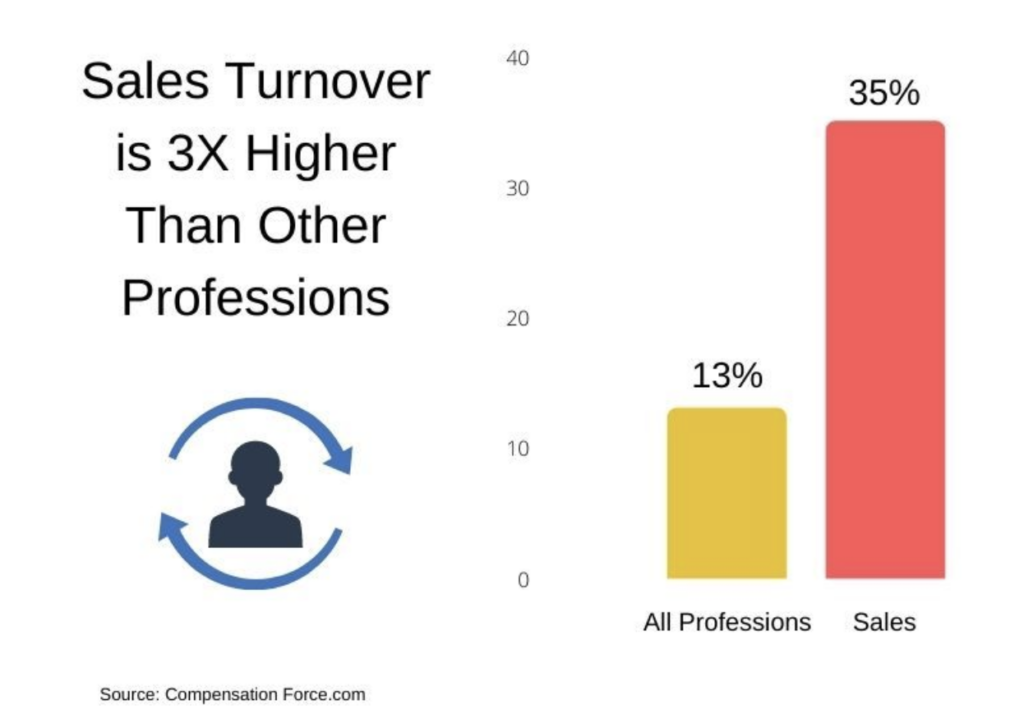From Startup to Enterprise: Strategies for Scaling Your Sales Team
Published on May 30, 2024

Regardless of the industry or the products sold, the end goal of nearly all businesses can be boiled down into one word — growth. You want to go from a fledgling startup just finding its footing to a profitable, well-established company with a solid slice of the market. While countless factors contribute to achieving this growth, a big one is effectively scaling your sales team.
Unfortunately, the odds for new startups aren’t great, as only 10% succeed in successfully scaling their business. However, if you can get it right, you should be well-positioned, because businesses that successfully scale up see an average revenue increase of 40-60%.
On that note, here’s a step-by-step process you can follow to scale your sales team and go from startup to enterprise.
Build a Strong Technological Infrastructure
Whether your sales team is 100% in-house, 100% remote, or a hybrid, you need the right tech stack. This helps your teams do their jobs more efficiently, be more productive, collaborate better, and provide the best possible customer experience.
When you’re at the initial startup stages, it’s crucial that you build a strong technological foundation from the start — one that meets your current needs as you gain initial momentum and one that’s capable of growing along with you over the years.
While the specific needs of each business can vary, some of the primary types of tech you usually need are a CRM platform, meeting and demo scheduling software, customer engagement tools, resource management software, and something for handling proposals and contracts. To simplify things, here’s a table that breaks down popular options for each category by each stage of growth.

Develop a Sales Talent Pipeline
Let’s be honest. Turnover is going to happen.
Studies have found that the average sales turnover rate can be as high as 35%, which is nearly three times the average for all professions at around 13%.
Like it or not, sales is an inherently high-turnover career. No matter how great your company is to work for and how far you go to retain top talent, unfortunately, turnover is going to happen. Without a process in place to “reload” when salespeople leave, scaling your sales team is going to be an uphill battle.
That’s why it’s so important to develop a streamlined system that allows you to quickly replace lost reps with talented new ones. This isn’t to say you shouldn’t work diligently to reduce turnover and twiddle your thumbs while rockstar reps walk out. But you should have a realistic game plan in place when salespeople inevitably leave at some point.
I find the best way to do this is to build a talent pipeline through techniques like:
- Enhancing your brand
- Creating a dedicated careers page on your website
- Building your social media presence
- Creating an employee referral program
We actually wrote an entire blog post that discusses the concept of a sales talent pipeline in detail, which you can find here. That’s a great starting point and can help you get the ball rolling.
Leverage Sales Automation
One of the biggest drains on a salesperson’s time is non-selling activities like handling emails and inputting customer data. These tasks can be tedious and time-consuming and take away from a rep’s ability to focus on more important activities like engaging with leads and closing deals.
What’s crazy is that Salesforce reports that “sales reps spend 66% of their time on non-selling activities.” And “in light of these responsibilities, 57% of reps expect to miss their quota.”
Needless to say, if your sales team is bogged down with burdensome, redundant tasks like these, it’s going to minimize their impact. And long term, this can be extremely detrimental to scaling your sales team and growing your business.
Fortunately, there are a ton of repetitive tasks that can be largely automated without skipping a beat.
Here are some examples.
- Automated email reply tools
- Automated data entry on CRM platforms
- Lead scoring tools to automatically score leads
- Online meeting scheduling software that allows leads to set up meetings
If you haven’t been using sales automation yet, now is the perfect time to get on board.
Stop Wasting Time on Unqualified Leads
One major hindrance to closing deals and business growth is sending unqualified leads to your sales team. And this is a bigger issue than you may think, considering that one study found that only 25% of leads are legitimate and should advance to sales.
While the definition of a qualified vs. unqualified lead can vary, for simplicity’s sake, I’m referring to “qualified” leads as sales qualified leads (SQLs), which “have been qualified, vetted, and expressed intent to engage in a sales cycle.”
Marketing qualified leads (MQLs), on the other hand, are more likely to buy than other leads but are still higher up in the sales funnel in either the awareness or interest stage. MQLs may become SQLs in the future, but they’re not scorching hot and likely still need some nurturing before being passed off to sales.

By having a clear understanding of which leads are SQLs and which are MQLs, you’ll be in a much better position to supply your sales team with the best of the best leads. In turn, this makes their jobs easier, and they can make more conversions, which should help grow your business quicker.
The question is, “How do you effectively qualify leads?”
It usually starts with creating your ideal customer profile (ICP), so you have a clear understanding of who you want to send to sales. And, as I touched on earlier, lead scoring tools can be incredibly helpful for objectively assessing a lead’s odds of buying through quantifiable data.
A simple example would be assigning points based on actions like visiting your pricing page, opening an email, and downloading content.

While this doesn’t always tell the entire story, it’s a reliable way of giving each lead a score so you know who’s ready to be sent to sales and who still needs nurturing.
Scaling Your Sales Team From the Ground Up
Confidently scaling your sales team and growing your business requires a well-defined, systematic process that you can build upon as you go. Although every company’s game plan will look a little different, the strategies outlined above should cover the essentials and spark noticeable, sustained growth.
When it comes to finding top talent to add to your sales force, HireDNA can be a huge help. It uses a data-driven, scientific approach to finding elite salespeople that can take your business to the next level. Register today and build an all-star team with HireDNA.
Image Source: (https://www.pexels.com/)
